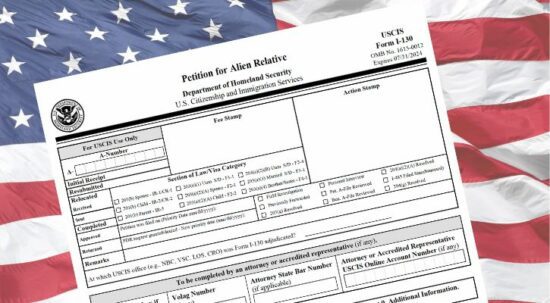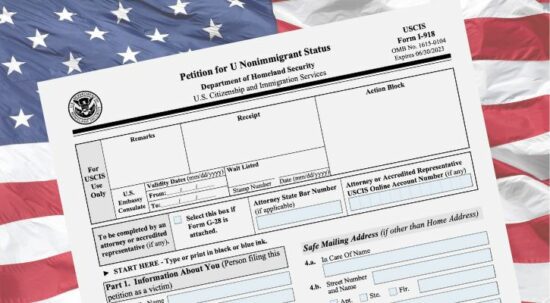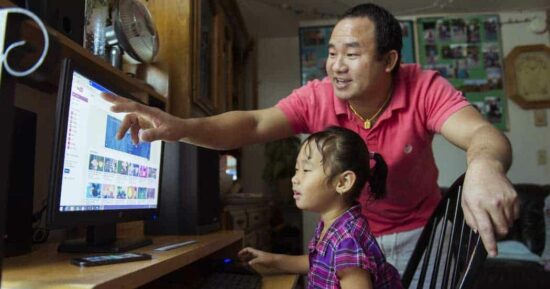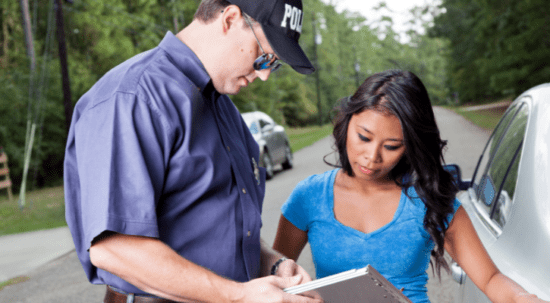که غواړئ له دې پاڼي څخه ووځئ، په سره رنګ د وتلو (exit) تڼۍ کلیک کړئ. ستاسو سره د ناوړه چلند کونکی شخص ممکن دا وګوري چې تاسو په انټرنیټ کې کومو برخو ته تللي ياست، نو ډاډ ترلاسه کړئ چې په خپل براوزر کې کتل شوي سوابق ټول پاک کړئ.
Looking for help now? Skip down to get help information.
کورنی تاوتریخوالی څه شی دی؟
کورنی تاوتریخوالی هغه مهال وي چې ستاسو په کورنۍ کې يو څوک هڅه کوي چې پر تاسو کنټرول ولري یا زیان درته ورسوي. دې ته د نږدې صميمي ملګري لخوا یا کورنی تاوتريخوالی هم ویل کیږي.
دا کېدای شي د عمر، نژاد، جنسیت، جنسي تمایل، یا مذهب په پام کې نیولو پرته هرچا ته پیښ شي. پداسې حال کې چې دا ډول قضيې ډيري د ښځو په اړه راپور شوي دي، خو نارینه يې هم کېدای شي قرباني شي. کورنی تاوتریخوالی اکثرا د نږدې شریکانو تر منځ ناوړه چلند او تاوتريخوالي ته اشاره کوي، مګر کېدای شي لاندي اشخاص هم پکې ښکېل وي:
- A spouse or partner
- A former partner
- یو داسي څوک چې تاسو ورڅخه ماشوم لرئ
- د کورنۍ غړي، لکه مور پلار، ماشوم، یا وروڼه
- د کوټې ملګری یا هغه څوک چې تاسو ورسره ژوند کوئ
Types of abuse
د کورني تاوتریخوالي عمومي نښې عبارت دي له:
- Harm to your body such as hitting, kicking, pushing, or throwing objects. This is called physical abuse.
- Unwanted touching such as unwanted kisses or sexual acts or pressuring you to have sex. This can even be considered abuse in a marriage.
- Mean and hurtful words such as threats, name-calling, yelling, or embarrassing you in front of others. This is called emotional abuse.
- Controlling your money such as taking it from you, refusing to provide you money for basic needs, or limiting access to accounts.
- Making decisions for you, forcing you to do things you do not want to do and other ways of controlling you.
- Checking your phone and internet messages or watching things you do closely, and wanting to know how you spend your time.
- Keeping you from friends, family, and community by not letting you see or talk to them or isolating you from your cultural or religious community.
- Showing up uninvited, following you, or sending lots of messages or calls that make you feel afraid. This could be considered stalking.
- Insulting or threatening your loved ones or destroying your belongings and things you care about.
- Using weapons to scare you such as threats with a knife, gun, or bat.
- Not allowing you to work or go to school.
- Extreme jealousy of you and your friends, or accusing you of cheating.
Domestic violence includes a variety of behaviors and does not always have to be physical. These signs might not show up until farther into a relationship or come in cycles.
| Many survivors of domestic violence blame themselves for abuse. Remember, domestic violence is never your fault. |
It may be hard to know if someone you care about is being abused.
Common signs could be:
- Unexplained bruises and injuries
- په مکرر ډول کار، ښوونځي يا ټولنيزو مراسمو ته نه حاضرېدل
- Avoiding friends and family
- د ټپونو او غيرحاضرۍ لپاره غیر معمولي او پرلپسې توضیحات
- د ځان درناوی او د ځان ارزښت کمول
- په شخصیت او مزاج کې بدلون
- د دوی د اړیکو په اړه له خبرو څخه ډډه کول
- Looking uncomfortable or afraid around their potential abuse
If you are noticing these things, ask if everything is okay.
د داسي چا لیدل چې تاسو یې د تاوتريخوالي په اړه فکر کوئ ستونزمن وي، مګر داسې شیان شته چې تاسو یې د مرستې لپاره کولای شئ ترسره کړئ.
- Talk to them in a safe and private setting where the abuser cannot overhear.
- د هغوی په اړه قضاوت مه کوئ او د يو ښه اوریدونکي په توګه فعاليت ترسره کړئ.
- پر دوی فشار مه راوړئ چې داسي څه وکړي چې دوی یې نه غواړي ترسره کړي. دوی په خپل وضعیت ښه پوهیږي.
- Look for places they can get help and share it with them.
- Offer to hold onto important documents and evidence of abuse.
- Call a helpline! They are there for you too and can offer helpful ideas.
Immigrants and abuse
هغه کډوال چې د تاوتريخوالي سره مخ دي، کېدای شي دوی د کډوالۍ د وضعیت له امله د ځانګړو ننګونو سره مخ شي. تاسي ممکن د خپلې ټولنې څخه د جلا کیدو احساس وکړئ او ملاتړ ته محدود لاسرسی ولرئ. تاسو ممکن په متحده ایالاتو کې د کورني تاوتریخوالي د قوانینو او حقونو په اړه نه پوهیږئ.
Your abuser may use your immigration status to control you or stop you from getting help. Your abuser may use your fear of deportation to stop you from reporting abuse.
Common examples can be that your abuser:
- ستاسو د کډوالۍ اسناد ستاسو څخه بند کړي
- Prevents you from getting identification documents
- قانوني اسناد لکه د موټر چلولو جواز او پاسپورټونه له منځه یوسي
- Stops you from filing an immigration application
- ستاسو په استازیتوب د کډوالۍ د غوښتنلیکونو د دوسیه بندۍ څخه انکار وکړي
- Threatens you or your loved ones with deportation
- تاسو د انګلیسي ژبي د زده کړې څخه محروم وساتي
د کډوالۍ مرستې په لټه کې
په متحده ایالاتو کې، د هغو کډوالو لپاره مرستې شته چې د کورني تاوتریخوالي قربانیان دي. تاسو ښايي وکولای شئ چې:
- Get special immigration status through the Violence Against Women Act (VAWA) if your abuser is a U.S. citizen or permanent resident.
- Apply for a U visa that lets immigrant victims stay in the USA, work legally, and receive public benefits.
| It is important to get legal advice as you consider your options. A lawyer or accredited representative can help you find out if you qualify and complete your application. Many organizations and lawyers offer free or low-cost legal help. |
خپل حقوق وپیژنئ
دا مهمه ده چې په متحده ایالاتو کې خپل حقونه او قوانین وپیژنئ. تاسو د کډوالۍ د وضعیت په پام کې نیولو پرته د خوندیتوب او ملاتړ حق لرئ.
هر هغه څوک چې د کورني تاوتریخوالي سره مخ وي حق لري:
- Help from law enforcement
- د تاوتريخوالي د ترسره کونکي جرمي تعقیب
- Emergency shelter
- Emergency medical care
- Short-term housing
- Crisis counseling
- Community services
- Protective orders
- Child custody and support
- Legal separation or divorce without the consent of your spouse
د کډوالو لپاره، دا هم مهمه ده چې بايد پوه شي:
- تاسو کولای شئ پرته له دې چې د خپل کډوالۍ وضعیت شریک کړئ د تاوتريخوالي په اړه راپور ورکړئ.
- You have the right to translation and interpretation help when you speak to the police and get government services.
- You have the right to help even if you are an undocumented immigrant.
مرسته ترلاسه کړئ
ډیري خدماتي ادارې شته چې غواړي ستاسو سره مرسته وکړي. تاسو ممکن هغه مرسته هم ترلاسه کړئ چې په ځانګړې توګه ستاسو د هیوادوالو يا هغه کسانو لپاره وي چې ستاسو په ژبه خبري کوي.
تاسو کولای شئ دا لومړني ګامونه پورته کړئ:
- Make a safety plan to prepare for a crisis. This includes before and after leaving an abusive situation.
- Document your abuse. Take photos of your injuries and screenshots of threatening messages.
- Talk to people you trust. This can be a friend, family, teacher, school counselor, neighbor, or community leader.
- Call or text a helpline for free and anonymous help. Helplines are staffed by trained professionals who can provide guidance and support.
- Reach out to a community organization for help. They can offer various forms of assistance, including counseling, shelter, and access to legal resources.
- Talk to an immigration attorney. Get advice about your rights and options for legal protection.
- Find help for your mental well-being. Abuse can affect your happiness and health. Learn how to find mental health services.
| که تاسو اندیښنه لرئ چې يو څوک ستاسو د انټرنیټ کارول څاري، خپل د لټون اړوند سابقه پاکه کړئ او شخصي حالت ته يې واړوئ. تاسو د اضافي خوندیتوب لپاره دا هم کولی شئ چې د ملګري وسیله یا د کتابتون کمپیوټر وکاروئ. |
د کورني تاوتریخوالي په اړه راپور ورکول
کورنی تاوتریخوالی د قانون خلاف عمل دی. تاسو کولی شئ هر وخت د تاوتريخوالي په اړه پولیسو ته خبر ورکړئ.
دلته هغه څه دي چې تاسو یې ترسره کولای شئ:
- که تاسو طبي مرستې ته اړتیا لرئ د پولیسو مرکز یا روغتون ته لاړ شئ. تاسو کولای شئ هلته پولیسو ته راپور ورکړئ.
- که د بیړنی حالت سره مخ ياست، د مرستي لپاره د اړوند پولیسو د افسر سره خبرې وکړئ. آرام اوسئ او ریښتیا ووایاست.
- که ستاسو ملګري ټوپک، نورې وسلې، یو ګواښ، یا د دوی په وړاندې د مخنیوي امر ولري، پولیسو ته يې په اړه خبر ورکړئ.
- که چیرې پولیس ستاسو کور ته راشي، تاسو کولای شئ د دوی سره د خبرو کولو غوښتنه وکړئ. تاسو مکلف نه یاست هغه کاغذونه لاسلیک کړئ چې تاسو یې نه شئ لوستلای او يا نه ورباندي پوهېږئ.
- دا وګورئ چې آیا د سیمه ایز بحران مرکز یا سرپناه کولای شي ستاسو سره د راپور په جوړولو کې مرسته وکړي.
- Read more tips for reporting to the police.
تاسو کولی شئ د محافظت د حکم لپاره د دوسیه بندۍ اړوند هم فکر وکړئ چې ستاسو د تاوتريخوالي په فزیکي توګه تاسو ته د نږدې کیدو یا تاسو او نورو سره ناوړه چلند مخه نیسي. تاسو باید په د محکمې په استماعيه غونډه کې شاهدي ورکړئ. یو محافظتي حکم کولای شي څو کاله دوام وکړي او دا ممکن نوري مودې ته وغځول شي.
| Each state has specific laws related to domestic violence. Learn about restraining orders, divorce, custody, and child support in your state. |
Hotlines and other help
Hotlines and organizations provide free and private support to domestic violence survivors. They can help you with a safety plan, find a safe place to go, and offer mental health support and legal advice.
They will ask for information about your situation to help you figure out what options are available. You do not have to share any details that you do not want to. They will not share your information or report your abuse without your permission.
Organization | وړاندیزونه |
|---|---|
24-hour hotline available in 200+ languages. They also list local services. | |
Rape, Abuse & Incest National Network (RAINN) 800-656-4673 | 24-hour hotline for sexual assault. Also in Spanish. |
The National Center for Victims of Crime (NCVC) 855-484-2846 | Hotline for victims of crime. |
Love is Respect 866-331-9474 TTY 800-787-3224 | 24-hour hotline for teens and young adults. Also in Spanish. |
Womankind 888-888-7702 | 24-hour hotline. Also in Spanish and 18 Asian languages. |
National Child Abuse Hotline 800-422-4453 | 24-hour hotline to get guidance for child abuse. This is not a reporting line. |
Legal information and email hotline. | |
Legal help for immigrant survivors. | |
Search for shelters and domestic violence programs near you. | |
Search list of organizations that help survivors of sexual assault. | |
Find a center near you. | |
Search list of organizations that help the Muslim community. | |
Resources on elder abuse. | |
Afghan Asylum Helpline 888-991-0852 | A general helpline that can offer help in Dari and Pashto. |
ددې پاڼي معلومات له National Domestic Violence Hotline, USCIS, Esperanza United, او نورو باوري سرچینو څخه په لاس راغلی دي. زموږ موخه دا ده چې د پوهیدلو لپاره اسانه معلومات وړاندې کړو کوم چې په منظم ډول تازه کیږي. دا معلومات حقوقي مشوره نه ده.






